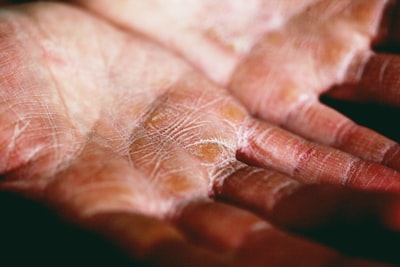Can Dehydration Cause Hunger Pangs?
Are you feeling hungry even after having a meal? It might not be your appetite, but rather dehydration. Dehydration can cause hunger pangs, and it is important to understand its impact on the body. In this blog, we will explore the connection between dehydration and hunger pangs and how thirst can be mistaken for hunger. We will also discuss the physical symptoms of dehydration, emotional and cognitive effects of dehydration, and practical tips to stay hydrated, including incorporating a trusted IV drink solution into your daily routine. By understanding the science behind thirst and hunger, you can differentiate between real hunger and thirst and make informed decisions about your body's needs. So, let's dive into the world of hydration and learn how to prevent dehydration hunger.
Understanding Dehydration and Its Impact on the Body
Dehydration can have a detrimental effect on the overall functioning of the body. It is crucial to maintain adequate hydration for optimal health. Neglecting hydration can lead to various health issues that can be avoided with proper attention to fluid intake. The human body consists of a significant amount of water, emphasizing the importance of staying hydrated. Hydration plays a vital role in facilitating essential bodily functions such as digestion and circulation. Therefore, it is necessary to prioritize hydration to ensure the smooth functioning of the body.
The Connection Between Dehydration and Hunger Pangs
Dehydration can sometimes be mistaken for hunger, as thirst signals can be misinterpreted as hunger cues. In fact, dehydration can lead to an increase in appetite and hunger pangs. When we don't drink enough water, our body may send signals that mimic the feeling of hunger. This is because our body needs fluids to function properly, and inadequate fluid intake can disrupt normal bodily processes. By drinking enough water, we can help reduce unnecessary snacking and prevent dehydration-related hunger. So, the next time you feel hungry, grab a glass of water before reaching for a snack. Staying hydrated is not only important for preventing dehydration but also for maintaining overall health and well-being.
How Dehydration Affects Appetite
Dehydration can impact appetite in various ways. One of the effects of dehydration is an increase in appetite. When the body lacks proper hydration, it can send false signals of hunger, leading to a feeling of being hungry even when you may not actually need food. This can result in overeating and unnecessary calorie intake. To combat this, it is important to drink water before meals. This can help fill up the stomach and reduce the chances of excessive food intake. Staying hydrated is essential for regulating and controlling appetite, as it helps maintain a balance in the body's energy intake and prevents unnecessary weight gain. It is worth noting that thirst signals can sometimes be mistaken as hunger cues, so it is crucial to pay particular attention to the body's hydration needs.
The Science Behind Hunger Pangs and Thirst
Hunger pangs are a natural response to the body's need for energy. The hypothalamus, a small region in the brain, plays a crucial role in regulating both hunger and thirst. Interestingly, thirst and hunger signals are processed differently in the brain. When dehydrated, the body may prioritize water consumption over food intake. This can be observed when the sensation of thirst is stronger than the sensation of hunger. Our bodies have evolved to experience hunger and thirst as distinct sensations, ensuring that we consume enough nutrients and fluids for our overall well-being. So, the next time you feel hungry, it might be worth considering if you're properly hydrated as well.
The Role of Hypothalamus in Regulating Thirst and Hunger
The hypothalamus, a small region of the brain, plays a critical role in regulating thirst and hunger. It receives signals related to hydration and food needs, prompting us to drink water when we are dehydrated and triggering hunger when our bodies need energy. Proper hydration is essential for the hypothalamus to function optimally.
The hypothalamus acts as a control center for maintaining the body's fluid balance and regulating appetite. It monitors the levels of hormones, such as leptin and ghrelin, that influence hunger and satiety. When the body is dehydrated, the hypothalamus signals us to drink water to restore hydration. Similarly, when the body needs energy, the hypothalamus triggers hunger to prompt us to eat.
Understanding the role of the hypothalamus in regulating thirst and hunger is crucial for maintaining overall health and well-being. By ensuring proper hydration and responding to hunger signals appropriately, we can support our body's natural mechanisms for maintaining energy balance.
How Thirst Can Be Mistaken for Hunger
Thirst signals can sometimes be misinterpreted as hunger. When the body is dehydrated, it can mask the need for water and lead to increased food intake. To determine if thirst is the true need, it is helpful to drink water first when feeling hungry. This can help differentiate between thirst and hunger and prevent unnecessary calorie consumption. Adequate hydration is crucial in reducing the likelihood of mistaking thirst for hunger. Recognizing the difference between these sensations can have a significant impact on our overall nutrition and weight management. A recent study even suggests that drinking a glass of water before meals can aid in weight loss by reducing energy intake. So, next time you feel hungry, give your body a chance to communicate its true needs.
Recognizing the Signs of Dehydration
Fatigue and low energy levels are common indicators of inadequate hydration. When our body doesn't have enough water, it can lead to feelings of tiredness and decreased alertness. Another sign of dehydration is a dry mouth and throat. This occurs when the body isn't receiving enough fluids to keep these areas properly lubricated. Additionally, dark-colored urine can be a visible sign of dehydration. When we are adequately hydrated, our urine tends to be a light shade of yellow. However, when we're dehydrated, it becomes more concentrated and darker in color. Dizziness and lightheadedness are also potential symptoms of dehydration. These occur because our blood volume decreases when we don't have enough fluids. Lastly, headaches and muscle cramps can be signals that our body needs more water. Proper hydration is essential for our overall well-being and should not be overlooked. To get down deep into these topics, let's break apart the physical effects of dehydration versus the mental or emotional effects:
Physical Symptoms of Dehydration
Dehydration can manifest in various physical symptoms. One noticeable sign is dry skin and lips, as the body lacks the necessary hydration to keep them moisturized. Additionally, dehydration can lead to an increased heart rate and decreased blood pressure, indicating a disturbance in the body's fluid balance. Feeling weak and lethargic is another common effect of dehydration, as the body requires adequate hydration to function optimally. Digestive issues such as constipation can also arise from dehydration, as water plays a crucial role in maintaining regular bowel movements. Finally, a decrease in urine output is a clear physical symptom of dehydration, demonstrating that the body is conserving water. Recognizing these signs and taking prompt action to rehydrate is essential for maintaining overall health and well-being.
Emotional and Cognitive Effects of Dehydration
Dehydration can have significant effects on our emotional and cognitive well-being. When we don't get enough water, it can negatively impact our mood and cognitive function. We may become irritable and have difficulty concentrating. Dehydration can also lead to feelings of confusion and impaired memory. It can even decrease our alertness and productivity. That's why it's crucial to maintain adequate hydration for optimal emotional and cognitive health. By drinking enough water throughout the day, we can ensure that our brain has the necessary hydration to function at its best. So, if you find yourself feeling moody or struggling to focus, try reaching for a glass of water. Investing in your hydration can have a positive impact on your overall well-being.
How to Differentiate Between Real Hunger and Thirst
Paying attention to the body's signals can help distinguish between hunger and thirst. When feeling hungry, drinking a glass of water can help determine if it's true hunger or simply thirst. Real hunger tends to involve specific cravings for food, while the body's need for water is usually accompanied by a general feeling of thirst. It's important to note that consulting a healthcare provider can provide guidance in differentiating between hunger and thirst, especially in cases where there may be underlying medical conditions or concerns. By being aware of these distinctions, individuals can make informed choices about their calorie and nutrition intake, which can ultimately impact factors such as weight gain, energy levels, and overall well-being. But first, let's dive into common issues that lead to over-eating:
1 | Dehydration
Dehydration can have a significant impact on our body, including our appetite. It's essential to understand the link between dehydration and hunger pangs. When our body is dehydrated, it may send signals that can be mistaken for hunger. This is because the hypothalamus, the part of our brain that regulates hunger and thirst, can sometimes confuse the two sensations.
Symptoms of dehydration can include increased thirst, dry mouth, dark urine, fatigue, and dizziness. When we are dehydrated, our body's ability to properly regulate appetite can be affected. It's crucial to stay hydrated by drinking an adequate amount of water each day. The general recommendation is to drink at least eight glasses of water, or about 64 ounces, but individual needs may vary depending on factors such as activity level and climate.
To stay hydrated throughout the day, it's helpful to keep a water bottle with you and take regular sips. Foods and drinks that can help hydrate the body include fruits and vegetables with high water content, such as watermelon, cucumbers, and oranges. Remember to consume water in moderation, as excessive fluid intake can lead to hyponatremia, a condition where the body's salt levels become dangerously low.
2 | Eating Too Quickly
Eating too quickly can lead to hunger pangs, as well as other factors like dehydration, insufficient water intake, and consumption of high-salt or high-sugar foods. These factors can cause a sensation of hunger, even when the body doesn't actually need food. To prevent this, it's important to stay hydrated throughout the day by drinking plenty of water. Eating slowly and mindfully allows the body to better regulate hunger signals, preventing overeating. Additionally, choosing foods that are high in fiber, protein, and healthy fats can help control hunger and promote satiety. By paying attention to our eating habits and making conscious choices, we can ensure a healthier relationship with food and avoid unnecessary hunger pangs.
3 | Food Images
It's important to remember that dehydration can sometimes be mistaken for hunger, leading to unnecessary snacking or overeating. One way to control appetite and prevent dehydration-related hunger pangs is by drinking water before meals. This can help hydrate the body and reduce feelings of hunger. Additionally, certain foods and beverages, such as water-rich fruits and vegetables and herbal teas, can also contribute to overall hydration and help curb your cravings. Keeping yourself properly hydrated throughout the day is essential for maintaining your health and well-being. So, if you find yourself reaching for a snack, take a moment to assess whether it might actually be thirst disguising itself as hunger. Drinking a glass of water could be just what you need to keep your appetite in check.
4 | Medication
Certain medications can have the side effect of causing dehydration. When you are dehydrated, you may experience increased hunger and thirst sensations. This is because your body is trying to signal that it needs more fluids and nutrients. Additionally, some medications can affect appetite and metabolism, leading to changes in hunger levels. If you notice any unusual symptoms related to dehydration or changes in appetite while taking medication, it is important to talk to your healthcare provider. They can provide you with a medical opinion and offer guidance on how to manage these symptoms. Remember, staying properly hydrated is crucial for overall health and well-being.
5 | Skipping Too Many Meals
While it may seem counterintuitive, skipping meals (unless you're on a good, solid intermittent fasting nutritional cycle that's planned) can actually exacerbate feelings of hunger and thirst. Dehydration can cause the body to confuse thirst signals with hunger pangs, leading to increased cravings and the potential for overeating. To prevent this, it's essential to stay hydrated by drinking enough water throughout the day. Water not only helps control hunger cravings but also aids in maintaining a healthy balance of fluids in the body. Additionally, eating regular, balanced meals is crucial for regulating hunger signals and preventing dehydration. By paying attention to your body's signals and addressing both thirst and hunger appropriately, you can ensure that you nourish yourself adequately and maintain your well-being.
6 | Stress
Stress can have a significant impact on our bodies and overall well-being. Interestingly, chronic stress can also lead to dehydration by increasing the body's water loss. When we're constantly under stress, our body's natural response is to release stress hormones which can cause increased sweating and water loss. This can lead to symptoms similar to hunger, such as fatigue and dizziness. Moreover, stress can also increase appetite, causing people to eat more even when they are not truly hungry.
To avoid dehydration and stress-induced hunger, it is important to take care of our hydration levels. Drinking plenty of water throughout the day can help replenish lost fluids and prevent dehydration. Additionally, practicing relaxation techniques and self-care can help reduce stress levels, leading to better overall health. By paying attention to our hydration and stress levels, we can better manage both our physical and mental well-being.
7 | Alcohol
Alcohol consumption can lead to dehydration due to its diuretic properties. When the body is dehydrated, it often confuses thirst for hunger, leading to hunger pangs. To prevent dehydration and reduce hunger pangs while consuming alcohol, it is important to drink water before and during alcohol consumption. Additionally, eating hydrating foods like fruits and vegetables can also help maintain hydration levels and reduce hunger pangs. It's crucial to limit alcohol intake and stay hydrated to maintain overall health and well-being. By taking particular attention to hydration while consuming alcohol, individuals can help prevent dehydration-related hunger pangs and ensure their bodies are properly nourished.
8 | Carbohydrates
Carbohydrates play a crucial role in providing the body with energy. They are the main source of fuel for our cells and organs. When we consume carbohydrates, they are broken down into glucose, which is then used by our body as energy. There are two types of carbohydrates: simple and complex. Simple carbohydrates, such as those found in sugar and white bread, are quickly digested and can cause blood sugar spikes and crashes. On the other hand, complex carbohydrates, like those found in whole grains and vegetables, provide sustained energy and help regulate blood sugar levels. It's important to stay properly hydrated for efficient carbohydrate metabolism and to prevent dehydration-induced hunger pangs. By incorporating a balanced mix of carbohydrates, protein, and healthy fats into our diet, we can maintain satiety and prevent hunger.
9| Insufficient Sleep
Lack of sleep can have a significant impact on our hunger levels and cravings. When we don't get enough sleep, it can disrupt the regulation of hormones like ghrelin and leptin, which are responsible for signaling hunger and fullness. This disruption can lead to an increase in appetite and a craving for high-calorie foods. Additionally, poor sleep quality can contribute to stress and emotional eating. When we are tired, we may be more likely to reach for comfort foods as a way to cope with our fatigue and emotions.
Improving sleep quality is crucial for managing hunger. Establishing a consistent sleep routine and creating a relaxing sleep environment can help improve the quality of our sleep and reduce the likelihood of experiencing excessive hunger. It's also important to note that if hunger persists despite getting adequate sleep, it may be a sign of underlying medical conditions, and it's recommended to consult with a healthcare provider.
10 | Not Eating Enough Protein
Protein plays a crucial role in maintaining muscle mass and aiding in weight loss. It is not just important for bodybuilders, but also for anyone looking to shed a few pounds. Consuming protein-rich foods helps keep you full and satisfied, reducing the likelihood of overeating. Additionally, protein helps regulate blood sugar levels, preventing spikes and crashes that can lead to cravings. Whether you have an active lifestyle or weight loss goals, including protein in every meal and snack is essential. Good sources of protein include meat, fish, eggs, dairy products, legumes, and plant-based options like tofu or tempeh. So, make sure to prioritize protein intake for a well-rounded and satiating diet.
Practical Tips to Stay Hydrated and Prevent Dehydration Hunger
Practical tips to stay hydrated and prevent dehydration hunger pangs include some of the following:
- Keeping a water bottle within reach throughout the day.
- Setting reminders to drink water at regular intervals can help maintain hydration levels.
- Opting for hydrating foods like fruits and vegetables can also contribute to staying hydrated.
- It's essential to avoid excessive caffeine and alcohol, as they can contribute to dehydration.
- Listening to your body's thirst signals and drinking plenty of water when you feel thirsty is crucial.
By following these practical tips, you can ensure proper hydration and reduce the chances of experiencing dehydration hunger.
Importance of Regular Water Intake
Drinking enough water is crucial for maintaining proper hydration and overall health. Water plays a key role in regulating body temperature and supporting the optimal function of organs. When we become dehydrated, it can lead to various symptoms such as fatigue, dizziness, and headaches. By staying well-hydrated, we can help prevent muscle cramps and joint stiffness. Additionally, adequate water intake supports proper digestion and nutrient absorption. It is recommended to drink at least 8 glasses of water per day, but this can vary depending on individual needs and activity levels. Remember to pay particular attention to your water intake, especially if you have a busy lifestyle or engage in physical exercise. Hydration is essential for maintaining a healthy body and promoting overall well-being.
Can Drinking More Water Reduce Hunger Pangs?
Drinking an adequate amount of water can help reduce hunger pangs. It creates a feeling of fullness and satisfaction, preventing overeating. Staying hydrated also helps control cravings and supports weight loss efforts by boosting metabolism. Additionally, drinking water before meals can help reduce calorie intake and prevent unnecessary snacking.
Frequently Asked Questions
Is it common to mistake thirst for hunger?
Mistaking thirst for hunger is a common occurrence. When dehydrated, the body may send hunger signals when it actually needs fluid intake. Drinking water or other hydrating fluids can help reduce false hunger pangs. Regular water intake throughout the day is recommended to prevent dehydration and minimize mistaken hunger signals.
Are there any other factors that could contribute to feeling hungry despite not being dehydrated?
Factors such as lack of sleep, stress, and hormonal imbalances can contribute to feeling hungry even when not dehydrated. Eating too quickly or consuming high-sugar or high-carb foods can also increase hunger. It's important to maintain a balanced diet and listen to your body's signals for hunger and thirst.
What helps a hunger headache?
To alleviate hunger headaches, try drinking water or consuming small, nutrient-dense snacks like fruits, nuts, or seeds. Avoid sugary or processed foods to prevent blood sugar spikes and crashes. Additionally, managing stress and getting enough sleep can reduce the occurrence of hunger headaches.
Conclusion
In conclusion, it is important to understand the impact of dehydration on our bodies and its connection to hunger pangs. Dehydration can affect our appetite and lead to mistaken feelings of hunger. The hypothalamus plays a crucial role in regulating both thirst and hunger signals, and sometimes these signals can be confused. It is essential to recognize the signs of dehydration, both physical and emotional, and differentiate between real hunger and thirst. To prevent dehydration hunger, it is recommended to stay hydrated by regularly drinking water throughout the day. While drinking more water can help reduce hunger pangs, it is also important to maintain a balanced diet and eat nutrient-rich foods. By prioritizing proper hydration and nourishing our bodies, we can ensure optimal health and well-being.
DISCLAIMER: THIS WEBSITE DOES NOT PROVIDE MEDICAL ADVICE
The information, including but not limited to, text, graphics, images and other material contained on this website are for informational purposes only. No material on this site is intended to be a substitute for professional medical advice, diagnosis or treatment. Always seek the advice of your physician or other qualified health care provider with any questions you may have regarding a medical condition or treatment and before undertaking a new health care regimen, and never disregard professional medical advice or delay in seeking it because of something you have read on this website.





